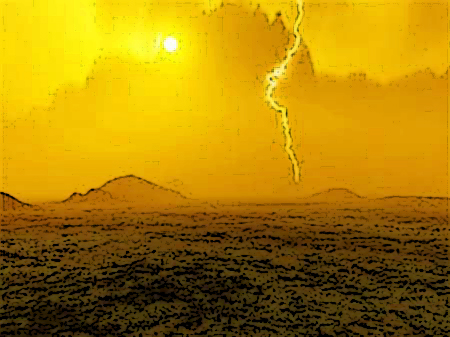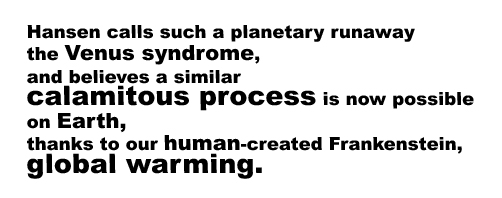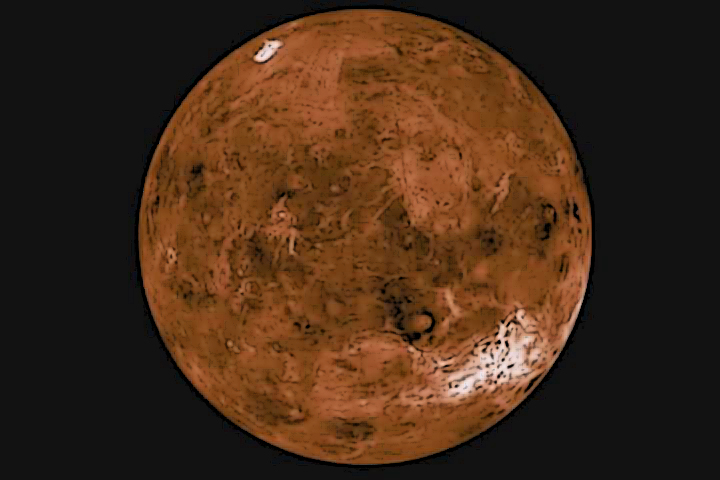“I’d hoped that my intuitions were wrong, but they weren’t.” – Jim Stiles, 2007
It’s late Monday morning at Starbucks, on the day after New Year’s. The snow outside is beginning to whip up; several inches are forecast for later in the day. As I write President Obama has less than sixty days, thanks to a deadline imposed by Congress, to decide whether to approve the proposed Keystone XL pipeline. It would transport crude petroleum from massively destructive tar sand excavations in the boreal forests of Alberta, Canada, to refineries along the Gulf coast of Texas, that heartland of the American oil business.
According to a news story I found on “The Hill,” dated early this morning, President Obama is likely to reject the pipeline on technical grounds, claiming that the Congressional deadline has in effect barred needed federal environmental review of proposed alternative routes around the ecologically sensitive Sand Hills region of Nebraska. But what is notable about this news story, as is so often the case in the mainstream virtual reality, is what it does not say: that Keystone XL is a fiendishly dangerous project that cogent humans should be terrified of.
Here’s why. Early in his career the eminent climate scientist James Hansen studied the greenhouse effect on the planet Venus. Due to amplifying feedbacks that occurred there, the plentiful water vapor was entirely lost to space. The atmosphere is now 97% CO2 and the surface of the planet has a temperature of 850 degrees Fahrenheit. Hansen calls such a planetary runaway the Venus syndrome, and believes a similar calamitous process is now possible on Earth, thanks to our human-created Frankenstein, global warming.
Here are several factors among others which he feels could make Earth vulnerable to a such a runaway: (1) levels of atmospheric CO2 here may have been lower in the distant past than we once thought, making our relatively high level at present even more of a concern; (2) climate “sensitivity” is apparently greater the warmer Earth gets, meaning that warming tends to beget quicker warming; and (3) greenhouse gases are increasing in the atmosphere so fast that the climate system may not have time to use its natural processes to cool it down. More specifically, Hansen said: “If we burn all reserves of oil, gas, and coal, there is a substantial chance we will initiate the runaway greenhouse. If we also burn the tar sand and tar shale, I believe the Venus syndrome is a dead certainty.” (See Hansen’s 2009 book, Storms of my Grandchildren, pp. 224-226, 236, and chapter 10 generally.)
Hansen is arguably our greatest climate scientist. He may be wrong about the risk that we humans could destroy all life on Earth, but: what if he isn’t? Try to imagine the suffering of our descendants, knowing that their own ancestors, namely us, have willfully brought about the ultimate catastrophe.
That’s what the news story from “The Hill” didn’t happen to mention. It did, however, include the following comments from Matt Letourneau, spokesperson for the U.S. Chamber of Commerce: “Right now, the issue in front of the President is whether the pipeline is in the national interest or not, and that’s where we think the discussion should be. Using some other issue as a reason to avoid making that decision, to us, is not sound policy.”
I read Letourneau’s last sentence three times, wondering if he thinks that preserving life on our planet is “some other issue.”
My hope, probably forlorn, is that President Obama will rise up and smite that pipeline with his holy tongue.
***
I got that much written before the first snow squall, which swept in at half past noon, blanketing the roads and parking lots, fast. I fled to a nearby Chinese restaurant, ordering Moo Goo Gai Pan for Gail and me before nimbly threading my way home along white tire tracks in the snow. I focus pretty well driving in the snow.
Nearly fell on my ass outside the Chinese restaurant.
***
Tuesday morning. Gail and I awoke to six inches of snow outside; now it’s coming down in pouring flakes. All the area schools are closed; since I’m a counselor in a school wellness center on Tuesdays, I have the day off too. Slipping out of bed, I put on a partial pot of decaffeinated coffee and sit in the big chair to write.
Back to Keystone XL. It’s stunning. Our political leaders, along with the lobbyists who push their buttons, are flirting with a pathway toward annihilating life on Earth. In spite of the apocalyptic stakes, they’ve refused even to foster a public debate about Hansen’s warning. What is leading them to such a bizarre perspective?
Maybe there is something about the structure of large, hierarchical societies that makes them weirdly obtuse to emerging environmental catastrophes. Here are the poet Gary Snyder’s observations, vintage 1977: “For a long time I thought it was only capitalism that went wrong. Then I got into American Indian studies and at school majored predominantly in anthropology and got close to some American Indian elders. I began to perceive that maybe it was all of Western culture that was off the track and not just capitalism – that there were certain self-destructive tendencies in our cultural tradition.” (The Real Work, 1980, p.94.) And maybe that self-destructiveness is a tendency that lies not just within Western cultures, but is endemic to the structure of hierarchical societies as a whole. Maybe that tendency goes all the way back to the first cities to arise out of the agricultural plain.
This suggests a comparison with hunter-gatherer cultures, the original environment of our evolutionary adaptation, which were more geographically fluid, egalitarian, sparsely populated, and better adapted to and more knowledgeable about the landscape and wild creatures surrounding them. In this vein let me share the following from the psychiatrist Carl Jung, which he recounted to his English speaking students in 1928: “[Knud] Rasmussen obtained from an Eskimo (the son of an Eskimo woman and a Dane, who had lived with him in Greenland) a marvelous story about an old medicine man who, guided by a dream, led his tribe from Greenland across Baffin’s Bay to North America. The tribe was increasing rapidly and there was a great scarcity of food, and he dreamt about a further country with an abundance of seals, whales, walruses, etc., a land of plenty. The whole tribe believed him and they started out over the ice. Halfway over, certain old men began to doubt, as is always the case: is the vision right or wrong? So half the tribe turned back, only to perish, while he went on with the other half and reached the North American shore.” (C. G. Jung, Dream Analysis: Notes of the Seminar Given in 1928-30, pp. 5-6.)
The story rings true, doesn’t it? It’s probably one of the ways conflicts sorted themselves out in the world of hunter-gatherers: the visionary versus “the old men.” I expect that they were evenly matched.
Now let’s imagine another story, this one taking place just as small settlements began to have some hierarchical features. We could call this story “At the Dawn of Hierarchy.” Our tribe is larger than in the previous story, almost a village, dating back 8,000 years ago in the Middle East. They grew wheat and barley in fields near their homes, hunting small animals within range of their settlement, and gathering wild foods such as nuts, berries, medicinal plants, and so on. When the crops wilted they relied on hunting and gathering; when the game animals fled they depended on gathering and their crops; and so on. It was a cycle they had learned to trust.
The medicine man – it was too early at this stage for priests – had a dream that the rain spirits had led him to a new land of plenty far to the northwest and told him that everyone in the settlement must migrate there with him or starve. Unlike the last story, however, when the medicine man reported his dream the “old men” angrily refused to leave the settlement, publicly upbraiding the medicine man as a fraud and a troublemaker. That same evening the old men solemnly gathered everyone together and with great earnestness assured them that they had lived in this good place since they were infants and knew that the rain spirits would never leave.
What the old men didn’t tell the others is that their detailed knowledge of growing crops was restricted to a hundred mile radius and that they had no idea what would grow somewhere entirely different. They also didn’t explain that moving away would have felt like the end of the world to them. What they didn’t need to explain was that because of their primary rights to the fields around the settlement they were both wealthy and influential in conferring status on younger people.
After the gathering a bitter conflict ensued between a ragtag group that still believed in the chastened medicine man and the rest of the people, who felt dependent on the “old men” and were fearful of life without their approval, guidance, and lifelong knowledge of growing food. Finally the medicine man slipped away with his tiny band of believers, eventually reaching the further country of his dream, where they flourished. The next growing season an unrelenting series of mega-droughts lasting fourteen years struck the old settlement, bringing starvation.
Pause. It’s mid-afternoon now. The snow has tapered off into tiny bits, blowing at sharp angles in the gusts of wind; sometimes softly fluttering; no longer hiding the torn gray clouds.
***
Thursday afternoon. I’m at Starbucks again. All day long the sky has been a clear blue dome with wisps of Cirrus up high. After dawn the sunlight shone gold on the tree limbs and threw pole-like shadows across the U.S. highway as I drove to my morning job as a drug and alcohol counselor at an outpatient correctional facility.
Here is an educated guess about the kind of people the “old men” are, at least a significant percentage of them, then and now: (1) outwardly directed, perceiving primarily through the five senses, keenly aware of how the rules of society work;(2) who relish the enjoyments of the material world and are usually competent and successful; tending in our time toward orthodox careers in business; (3) who are out of touch with the unconscious mind, distrusting intuitively derived insights;(4) who as a result have great difficulty imagining a future that is not a continuation of the way of life they know and enjoy.
As a group they excel at preserving a society’s traditions and keeping its institutions humming efficiently, therefore putting them in a position to acquire positions of influence. But when in a stratified society they’re exerting a critical mass of influence at a time when drastic change – a paradigm shift – is essential, tragedy will be the likely outcome. This is because a necessary but different vision of the future will seem alien and dangerous to them, and they will fight it with all their resources, steering their society straight into the rocks.
The “medicine men,” or inner-directed intuitives, could hardly be more different. While they eagerly draw insights and inspiration from the unconscious, they find conventional thinking and routines tedious and confining. They do not fit in, nor do they want to. And there aren’t very many of them. The “old men” outnumber them at least 9:1.
Gary Snyder once gave a brief but useful description of their orientation: “Some people’s sensibilities, as well as maybe their lifestyles, are out at the very edge of the unraveling cause-and-effect network of a society in time…they are like an early warning system that hears the trees and the air and the clouds and the watersheds beginning to groan and complain a little bit. And so they try to send a little bit of a warning back, although they themselves may not know what it is they’re hearing. They can also hear the stresses and the fault block slippage creaking in the social batholith and also begin to give out warnings.” (The Real Work, p.71.)
The inner-directed intuitives have a remarkable gift for spotting problem patterns just as they begin to emerge from the mist of the future. They also have the gift of envisioning far-reaching geographic, spiritual, or social changes in order to help their cultures cope. This made them invaluable within the relatively fluid hunter-gatherer cultures and they had significant roles within them. But within stratified societies they tend to scrape by as outsiders. Even where they gain prominence within the professional fields they favor, such as art and science, and are read, heard, and praised for their work, their warnings are ignored by people at the core of the political and economic system. Or suppressed, if those warnings hit a nerve. (On the foregoing paragraphs see Isabel Briggs Meyers, Gifts Differing, 1980, chapters 4 & 5.)
***
Saturday morning. It’s much warmer and the snow cover is almost gone. Scudding gray clouds; a predicted high in the fifties. Record high temperatures are proliferating all across the country. Must be the jet stream, a guy on the news said.
So: where is the further country? I’ve never read a better description than in Jim Stiles’ lovely book Brave New West, published in 2007. A key reason he wrote it is this. Although environmental groups have targeted huge areas in Utah for federal wilderness designation, which sounds good, he realized that these same groups were increasingly unwilling to treat the land itself as sacred. Specifically, they were silent in the face of alarming impacts from the mushrooming amenities industry near and upon “protected lands.” And guess what? He also noted a growing pattern of donations to these environmental groups from people and organizations with little interest in the spirit of wilderness.
Jim Stiles was watching professional environmentalists become “old men.”
He said, “Wilderness is anywhere we find things wild and free and solitude that is long and unbroken. All these places deserve our respect, our reverence, and our concern, or they will not survive…All land is sacred.” (p. 154.) I think that’s exactly where the further country is and how a person will know she or he has found it.
When and if a culture can find it is more difficult, but if ours does, if all the land within it becomes sacred, it will finally be safe from destruction, along with the creatures then surviving on it, as well as those of our own species who remain.
Assuming we’re thoughtful enough not to wipe out all life forms on the planet.
Note – the term “old men” denotes persons of recognized status with a certain outlook. They are often but not necessarily male or ripe in years.
Scott Thompson is a regular contributor to the Zephyr. He lives in West Virginia.
To read the PDF version of this article, click here.
Don’t forget the Zephyr Ads! All links are hot!







And…? What is the further country? I see it as local agriculture.
I guess I get your point, but the past 1 thousand years or more lead me to the conclusion it is the young men that are the ones that have advanced the consumptive excesses we see today. It is all relative in that the young men of today become the old ones of tomorrow. Is it possible that maybe we would be in a better place if the young men in the 1400’s had not wanted to head out to a new world where the old men were not in control?
Thanks for your comment, Ted. I used the term “old men” as a metaphor for capable people of whatever age (and both genders) who become so emotionally invested in the existing traditions of their society that they are unable to perceive the need for a cultural paradigm shift, even when that need is dire. So there are plenty of the young ones around, too. Perhaps I didn’t make that adequately clear.
In the US we do not have the ability to preempt the logical outcome of our cultural norms. We may have all the science that answers all the questions, but without the core beliefs and the education that support the courage to act we are stuck where we are- only able to blindly react and offer sacrifices to our gods in the futile hope that the terrible lessons that we must all learn will be postponed.